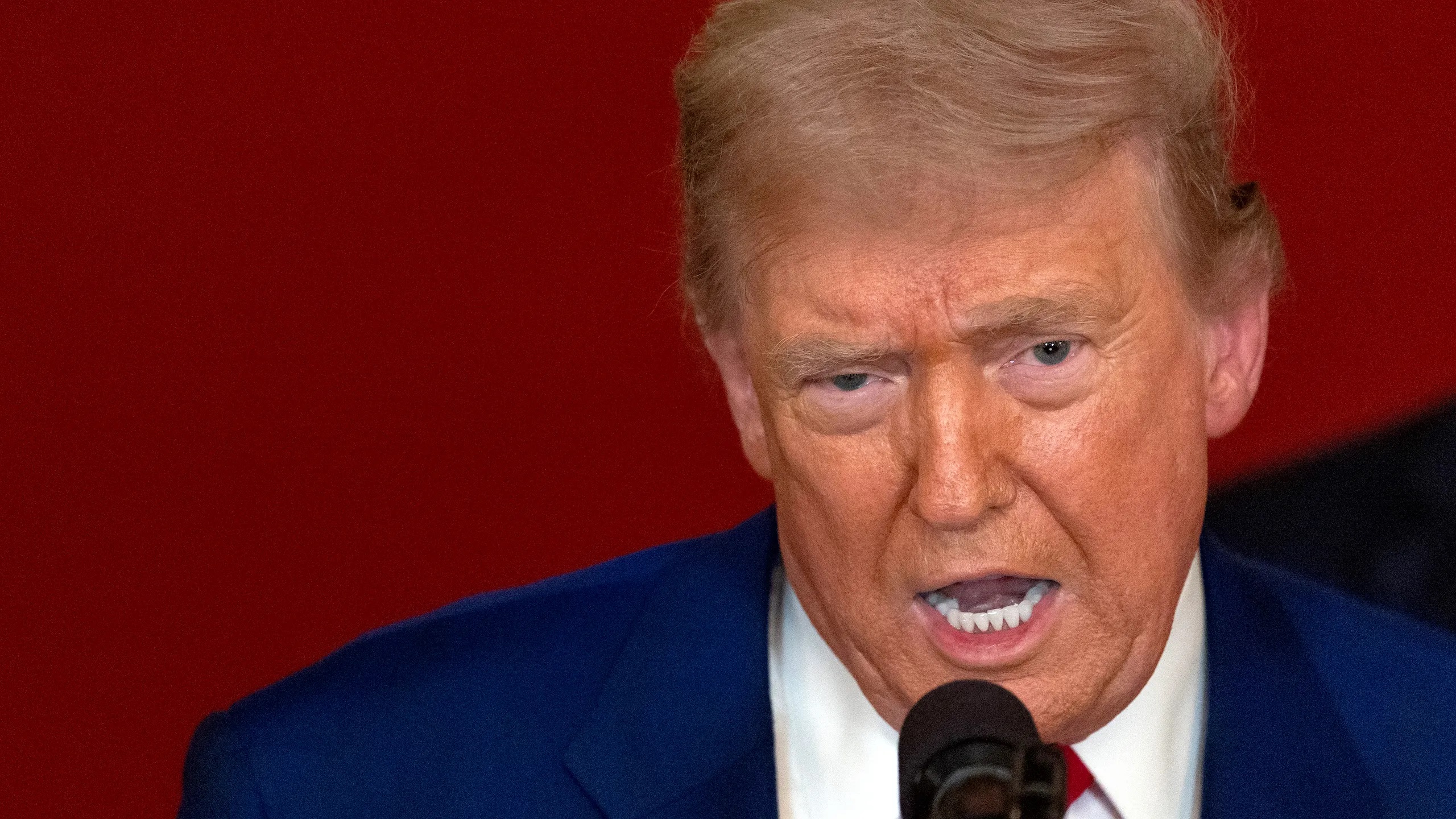U.S. President Donald Trump has once again escalated tensions with Iran, issuing stern warnings just weeks after authorizing military strikes on three of Iran’s nuclear facilities.
His remarks come amid renewed Iranian insistence on continuing its nuclear enrichment activities, which Tehran maintains are for peaceful, civilian use.
Trump’s comments were delivered on Monday during a press conference in Scotland, where he stood alongside British Prime Minister Keir Starmer.
He strongly condemned Iran’s recent declarations regarding its nuclear plans, characterizing Tehran’s actions as provocative and hostile.
“They’re sending out very dangerous, very nasty signals,” Trump told reporters.
“They shouldn’t be doing that. We already took out their nuclear capabilities once.
“If they restart, we’ll eliminate them again—and this time even faster.”
He emphasized that any renewed Iranian attempts to restart nuclear activities would be met with immediate and decisive force.
“We’ll do it openly, and we won’t hesitate,” he added, underscoring his administration’s firm stance.
The latest tensions stem from remarks made by Iranian Foreign Minister Abbas Araghchi, who recently reaffirmed Iran’s right to enrich uranium.
These comments came ahead of a new round of diplomatic discussions with the United Kingdom, France, and Germany.
The talks marked the first significant diplomatic engagement since the U.S. strikes and a brief conflict involving Israel.
Although Iranian officials described the negotiations as “serious, frank, and detailed,” no substantial progress was reported.
Iranian President Masoud Pezeshkian echoed his foreign minister’s statements, telling Al Jazeera that Iran would not halt its nuclear efforts.
However, he expressed cautious willingness to continue diplomatic discussions.
Despite the talks, Pezeshkian conveyed skepticism about the durability of the fragile ceasefire that followed a 12-day military confrontation with Israel.
“I am not very hopeful this truce will last,” he remarked.
Israel, meanwhile, has shown no signs of easing its posture toward Iran.
Israeli Defense Minister Israel Katz issued a direct threat on Sunday aimed at Iran’s Supreme Leader Ali Khamenei.
Speaking to the Israeli newspaper Yedioth Ahronoth, Katz warned that if Iran continued to endanger Israel, the Israeli military would not hesitate to strike at the heart of Tehran with even greater force, and possibly target Khamenei personally.
Such an aggressive move would likely require tacit approval from the United States, analysts say.
Israel has shown military initiative in the past.
On the other hand, strategic coordination with Washington remains crucial, particularly in high-risk operations that could destabilize the region further.
In June, President Trump had hailed the U.S. airstrikes on Iran’s nuclear sites at Fordow, Natanz, and Isfahan as a resounding success.
At the time, he claimed the operations had effectively “obliterated” Iran’s nuclear program.
However, subsequent intelligence assessments have cast doubt on the extent of the damage.
Updated reports suggest that while the attacks dealt a setback to Iran’s capabilities, the impact may have been less far-reaching than initially stated.
Over the weekend, Trump renewed his criticism of Iran’s persistence in pursuing nuclear technology.
“It’s stupid,” he said bluntly, referring to Tehran’s continued enrichment efforts.
The ongoing standoff comes at a precarious time for international diplomacy, with both European and Middle Eastern powers trying to prevent further escalation.
Tehran insists that its nuclear ambitions are peaceful.
On the other hand, the U.S. and its allies remain deeply skeptical, fearing the potential for weaponization.
In the absence of tangible diplomatic progress, tensions between Iran, the U.S., and Israel appear poised to escalate further.
With Trump signaling a readiness to act militarily and Israeli officials echoing similar sentiments, the prospect of renewed conflict looms large.
As the international community watches closely, the fragile balance between confrontation and negotiation may well determine the region’s immediate future.







